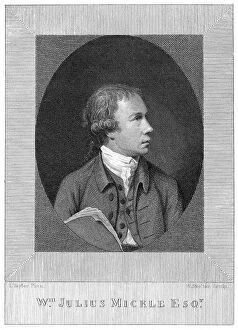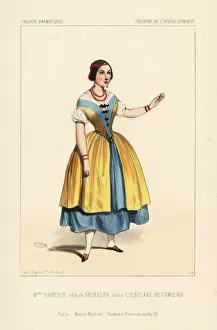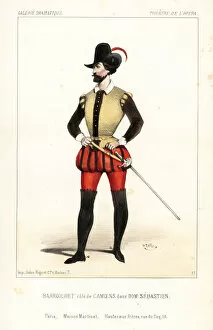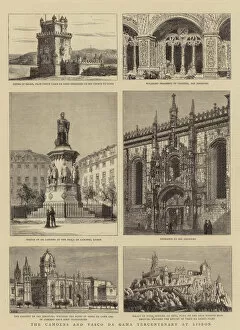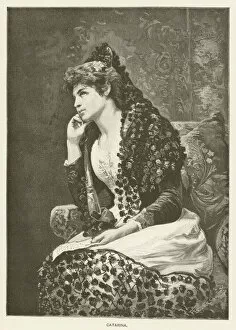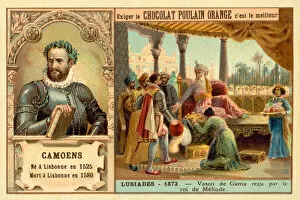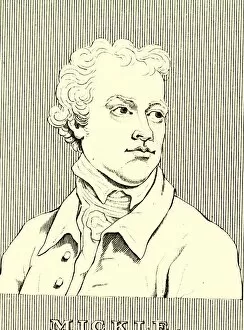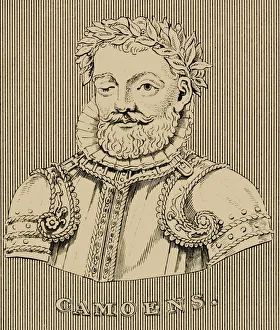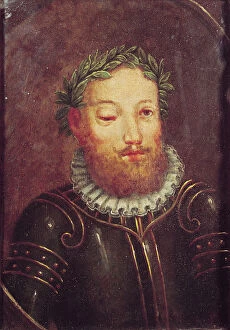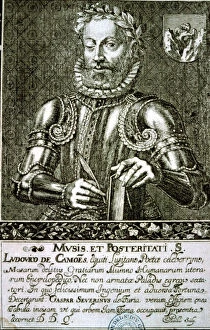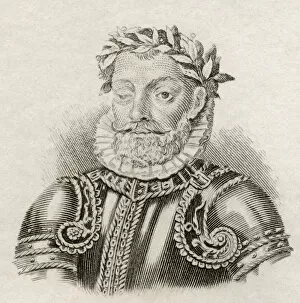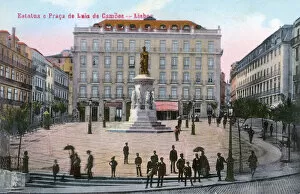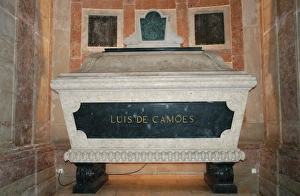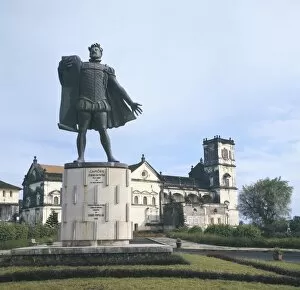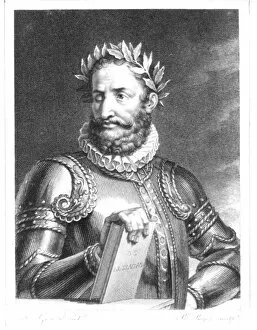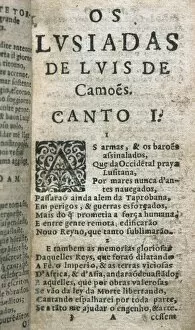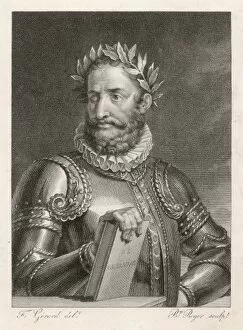Camoens Collection
"Camoens: The Legendary Portuguese Poet and Writer" Luis Vaz de Camoens, also known as Camoes, was a renowned Portuguese poet and writer who lived from 1524 to 1580
All Professionally Made to Order for Quick Shipping
"Camoens: The Legendary Portuguese Poet and Writer" Luis Vaz de Camoens, also known as Camoes, was a renowned Portuguese poet and writer who lived from 1524 to 1580. His literary contributions have left an indelible mark on the world of literature. One notable figure influenced by his works was Scottish writer William Julius Mickle (1735-1788), who translated Camoens' epic poem "The Lusiads" into English. Mickle's translation introduced Camoens' brilliance to a wider audience. Camoens' impact extended beyond the realm of literature. In the opera world, French baritone Paul Barroilhet portrayed him in various performances, showcasing his captivating life story through music. Opera singer Celestine Darcier also captivated audiences with her portrayal of Griselda, a character from one of Camoens' works. The significance of Camoens' legacy is evident in historical events such as the Camoens and Vasco da Gama Tercentenary at Lisbon. This event celebrated both writers for their remarkable contributions to Portuguese culture and history. Artistic representations further immortalize this literary genius. Engravings depict scenes from his most famous poem, "The Lusiads, " including Vasco da Gama being received by the king of Malindi—a testament to its enduring popularity. Portraits painted during the 16th-17th century capture the essence and spirit of Luis Vaz de Camoes himself—an enigmatic figure whose words continue to inspire generations even today. To honor his memory, Praca de Luiz de Camoes stands proudly in Lisbon, Portugal—a square named after him that serves as a tribute to his immense contribution to Portuguese literature and culture. Camoens remains an icon whose influence transcends time and borders—his poetry continues to resonate with readers worldwide while reminding us all of the power of words to shape history and touch the depths of our souls.


